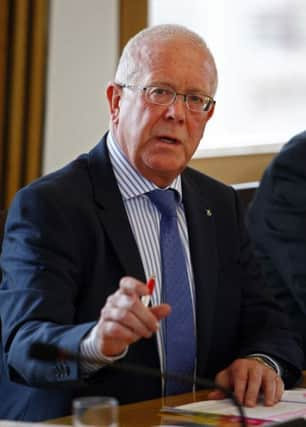MSPs '˜should not consent to Westminster Trade Bill'


The recommendation was made in a report on the UK Trade Bill by MSPs sitting on the Scottish Parliament’s finance and constitution committee.
A committee report published today states that clear impasse has been reached between the Scottish and UK governments on how the Westminster and Holyrood parliaments should interact.
Advertisement
Hide AdAdvertisement
Hide AdThe stand-off concerns the Sewel Convention, the mechanism which suggests that Westminster should get the consent of Holyrood when legislating in devolved areas.
In its report on the UK Trade Bill, the committee recommended that the Scottish Parliament should not consent to the bill unless the clauses that constrain the powers of Scottish ministers in devolved areas are removed.
The report said the approach was consistent with the committee’s attitude to consent to the EU Withdrawal Bill.
The three Tories on the committee, Adam Tomkins, Alexander Burnett and Murdo Fraser, dissented from sections of the report concerning withdrawing consent.
The committee called for a resolution to the impasse before the bill reaches its final amending stage in the House of Lords. The report recognised that while international trade is a reserved matter, the bill may well have an impact on devolved powers in Scotland.
The committee also said it is “very disappointing” the UK Trade Bill is silent on the role of the devolved institutions in the negotiation of new trade arrangements post-Brexit.
Committee convener Bruce Crawford MSP said: “This committee believes that the impasse between the Scottish Government and the UK government in relation to the Sewel Convention needs to be addressed as a matter of urgency and ideally in advance of the final amending stage of the Trade Bill in the House of Lords.
“We are not able to recommend that the Scottish Parliament consents to the Trade Bill unless those parts of the bill which currently constrain the powers of Scottish ministers in devolved areas are removed.”
Mr Tomkins said the Scottish Tories and UK government considered the Trade Bill “fully compliant” with devolution.